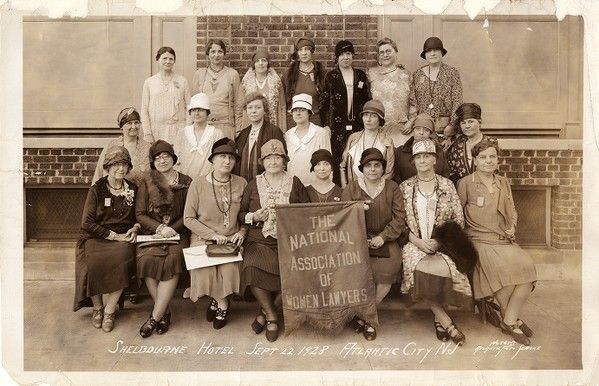NAWL joins NWLC Amicus in Ohio State University (6th Cir.)
UPDATE: SEP 2022 -- The Sixth Circuit ruled in favor of the plaintiffs in September 2022. OSU then asked the Supreme Court to reverse the Sixth Circuit’s decision. This morning, the Supreme Court declined to hear the cases, which locks in the survivors’ victory in the Sixth Circuit. We are so glad that the plaintiffs will be allowed to continue their Title IX lawsuits!
As a reminder, the plaintiffs are 118 former OSU male students, including student-athletes, who filed suit against OSU regarding their sexual abuse by Dr. Richard Strauss during the 1970s-1990s. However, a district court in Ohio dismissed their Title IX claims as untimely, ruling they should have sued OSU within 2 years of the abuse or of their last day at OSU. Last week, the Sixth Circuit held that the plaintiffs adequately alleged that they did not know and could not reasonably have known that OSU had injured them until 2018, when OSU announced it was hiring a firm to investigate Dr. Richard Strauss for alleged sexual abuse. In support of its decision, the Sixth Circuit cited our amicus brief, which noted that “recognizing abuse—especially physician-patient abuse—can be even harder in the context of college athletics because of the insular nature of teams, the immense trust and authority placed in coaches, and the culture of college athletics, including the role of coaches and trainers in setting norms” (page 26).
DETAILS -- In January 2022, NAWL joined the National Women's Law Center ("NWLC") in an amicus brief to the 6th Circuit in support of OSU male athletes sexual abuse survivors. DETAILS -- The National Women’s Law Center and our law firm partner Weil, Gotshal & Manges LLP invite you to join an amicus brief to the Sixth Circuit in support of two groups of Ohio State University male athletes who were sexually abused by Dr. Richard Strauss in Moxley v. Ohio State University and Snyder-Hill v. Ohio State University. A district court in Ohio recently dismissed the athletes’ Title IX claims as untimely, ruling they should have brought this lawsuit within 2 years of when they were abused (1978-1998) or when they graduated from or dropped out of OSU. The court rejected the athletes’ arguments that they did not understand that they had been sexually abused and that OSU had been deliberately indifferent to their abuse until 2018-2019, when allegations of OSU’s coverup surfaced in the press and independent investigators determined that Strauss’s procedures were medically inappropriate and unnecessary.
Our amicus brief explains that sexual assault is pervasive, especially on college campuses, and that failure to recognize sexual abuse is also a pervasive and insidious problem. College athletes are often especially vulnerable to being subjected to sexual abuse and failing to recognize it as such because of the intense love and trust they hold for their institutions; their dependence on their institutions for scholarships and other support; the power and authority wielded by team coaches and doctors; and the culture of “toughness” that encourages minimization and normalization of discomfort and harassment.



